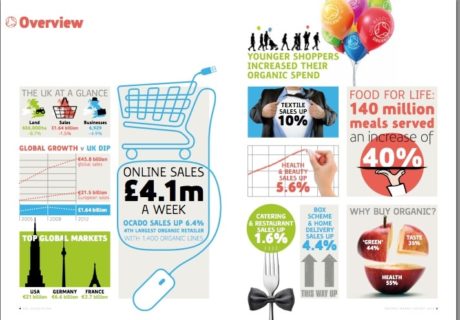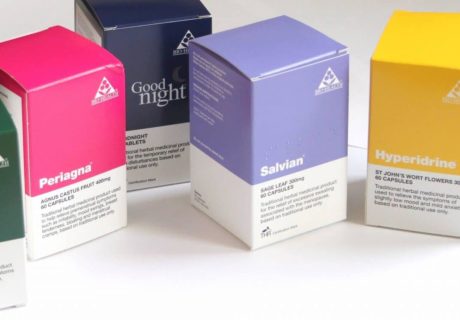Jim Twine, the Soil Association’s business development director, is sounding upbeat about the prospects for the UK organic sector when we speak to him on the eve of publication of the 2013 Organic Market Report. For someone tasked with telling the national media organic sales fell again in 2012 that might come as a surprise.
“We’re being completely up front. We’ve said it right there in the first paragraph – organic sales were down 1.5%. But we’ve also put this into perspective. The fact is we’re in the deepest and longest recession most people have known. Seen against that backdrop this year’s Report contains some really promising signs. There’s a lot to be optimistic about.”
Twine singles out two particular developments. “The growth in online sales is really exciting. It’s significant because people generally are buying more and more products online and the availability of organic from both bigger players like Ocado and Amazon, and specialist organic e-tailers, is increasing all the time. The shelf-space issue also become redundant with online, removing another obstacle.”
The other stand-out finding from this year’s report is the increase in spend on organic by younger shoppers. Comments Twine: “For the first time we’ve got the hard data to show the that ‘Jamie generation’ is making its impact. And by definition, pulling through these younger shoppers means you are building the future generation of organic consumers.”
But Twine acknowledges that big challenges lie ahead. There’s the job of getting some of the supermarkets to rebuild their organic stocking levels. And when they do, of which Twine is confident they eventually will, there are also likely to be some potentially serious supply chain issues. “Our message to the big retailers is to invest again in organic if you want to recapture the higher spending organic consumer – which Morrisons and Waitrose has done to its credit, and its benefit – and please do everything you can to strengthen the UK supply chain.”
So, what is the Soil Association’s message to independent retailers – health food stores, box schemes and organic supermarkets? “The message is, this is your time guys! There’s a big opportunity for you. Because despite the fall off we’ve seen in the recession, there are a lot of committed organic consumers out there. Indies are really well place to take advantage of this – they are already, their organic sales are growing. They can be light on their feet and they’re able to form long, meaningful relationships with their suppliers and tell that story to their customers.”
“We’ve spoken to a number of independent retailers who’ve told us that if the supermarkets want to drive their high-spending organic consumers away, then we’ll welcome them with open arms.”
“We’ve spoken to a number of independent retailers who’ve told us that if the supermarkets want to drive their high-spending organic consumers away, then we’ll welcome them with open arms.”
Twine says that the Soil Association is making strenuous efforts on several fronts to help organic businesses maximise future opportunities. “We have a four strand strategy. First there’s retailer engagement, which we do week in week out. Second is out export programme, for which there is a major development plan underway – for example our involvement and presence at major international trade shows in Europe and North America. There’s a lot of work being done in catering and food service, including both Food For Life opportunities and our work with driving growth in major high street coffee shop and food chains. And we’re working closely with online operators, which has included meet-the-buyer days with Ocado and Amazon and Tesco.com.”
Looking forward, Twine says: “The faltering economy will continue to have an impact, but I’ve absolutely no doubt that the organic market will return to healthy growth. For the market overall, it’s still a question of when – but for some product categories, and among independent and specialist retail the signs of revival are already there.”





